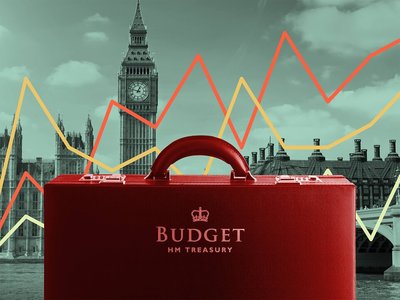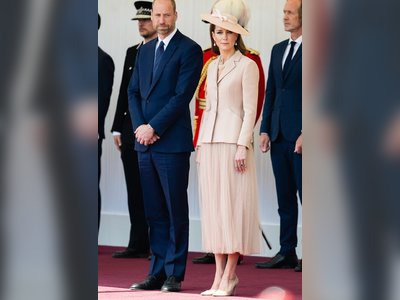
Friedrich Merz: A Key Figure in Germany's Political Landscape
The leader of the Christian Democratic Union navigates a shifting political terrain as Germany approaches national elections.
Friedrich Merz, leader of the Christian Democratic Union (CDU) in Germany, has emerged as a pivotal figure in the country's political climate, particularly with national elections on the horizon.
Merz, who has positioned himself as a conservative standard-bearer, aims to reshape the CDU's strategy amidst rising challenges from the far-right Alternative for Germany (AfD) party.
As Germany navigates a complex political landscape, Merz's actions could significantly influence the balance of power.
Under Merz's leadership, the CDU faces increasing pressure to address the concerns of voters disillusioned with traditional parties.
Polls indicate that the AfD is gaining traction, capitalizing on popular discontent surrounding issues such as immigration and economic insecurity.
In recent communications, Merz has emphasized the importance of distancing the CDU from what he describes as the postwar political consensus, potentially eroding the established 'firewall' against extreme parties.
This strategy has raised concerns among political analysts regarding its effects on both the CDU's future electoral prospects and the implications for the larger political landscape.
In parallel, the AfD has sought to bolster its image through associations with international political figures, notably leveraging endorsements from individuals connected to former U.S. President Donald Trump.
The party's outreach efforts indicate a calculated move to enhance its legitimacy and appeal among conservative voters in Germany as the national elections approach.
Reports suggest that the AfD's tactical usage of endorsements from well-known figures, including those in Silicon Valley like Elon Musk, is part of a broader strategy to attract mainstream acceptance.
The current political scenario is further complicated by the dissolution of the German parliament, which has set the stage for elections scheduled for February 23, 2024. Observers have noted that this election may represent a significant shift to the right, with potential repercussions for Germany’s future governance and its role within the European Union.
The evolving climate underscores the urgent need for traditional parties like the CDU to reassess their policies and outreach strategies in the face of growing populist sentiments.
Merz’s approach and the CDU's electoral strategy are under scrutiny as both political allies and opponents assess the implications of his gambits.
As the elections approach, the dynamics between mainstream conservatism and far-right populism will play a crucial role in shaping Germany's political trajectory.
Merz, who has positioned himself as a conservative standard-bearer, aims to reshape the CDU's strategy amidst rising challenges from the far-right Alternative for Germany (AfD) party.
As Germany navigates a complex political landscape, Merz's actions could significantly influence the balance of power.
Under Merz's leadership, the CDU faces increasing pressure to address the concerns of voters disillusioned with traditional parties.
Polls indicate that the AfD is gaining traction, capitalizing on popular discontent surrounding issues such as immigration and economic insecurity.
In recent communications, Merz has emphasized the importance of distancing the CDU from what he describes as the postwar political consensus, potentially eroding the established 'firewall' against extreme parties.
This strategy has raised concerns among political analysts regarding its effects on both the CDU's future electoral prospects and the implications for the larger political landscape.
In parallel, the AfD has sought to bolster its image through associations with international political figures, notably leveraging endorsements from individuals connected to former U.S. President Donald Trump.
The party's outreach efforts indicate a calculated move to enhance its legitimacy and appeal among conservative voters in Germany as the national elections approach.
Reports suggest that the AfD's tactical usage of endorsements from well-known figures, including those in Silicon Valley like Elon Musk, is part of a broader strategy to attract mainstream acceptance.
The current political scenario is further complicated by the dissolution of the German parliament, which has set the stage for elections scheduled for February 23, 2024. Observers have noted that this election may represent a significant shift to the right, with potential repercussions for Germany’s future governance and its role within the European Union.
The evolving climate underscores the urgent need for traditional parties like the CDU to reassess their policies and outreach strategies in the face of growing populist sentiments.
Merz’s approach and the CDU's electoral strategy are under scrutiny as both political allies and opponents assess the implications of his gambits.
As the elections approach, the dynamics between mainstream conservatism and far-right populism will play a crucial role in shaping Germany's political trajectory.









